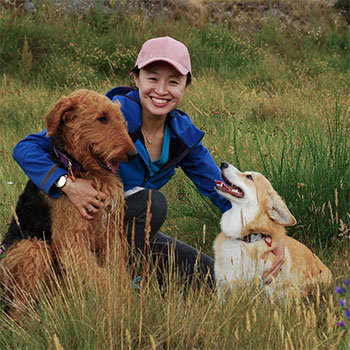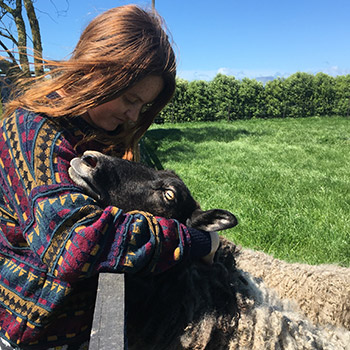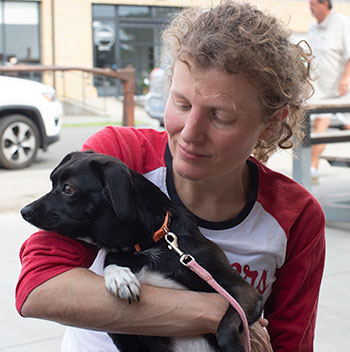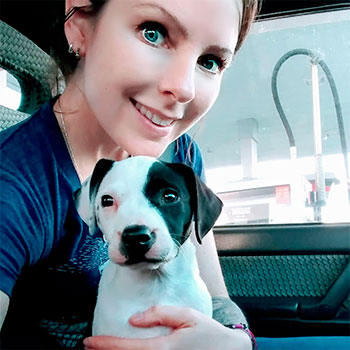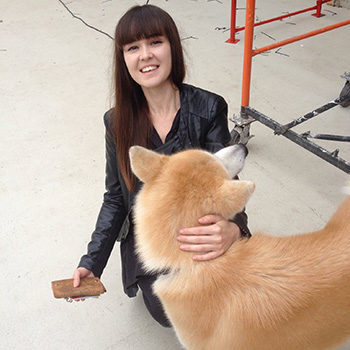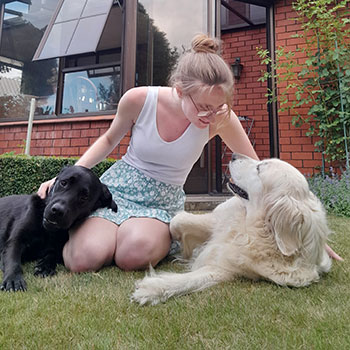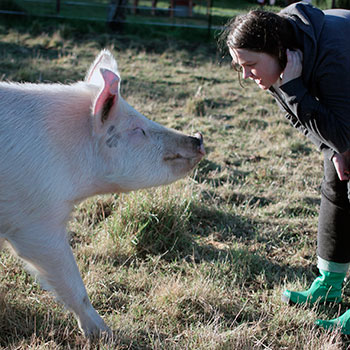Erin Jones
My research reflects my applied interest dog behaviour, a field where I work as a consultant and educator. My mission is helping people improve their relationships with their dogs. I am an advocate for humane training and improving our perception of dog culture so that our dogs have the best possible quality of life.
The human-dog interspecies relationship is unique: dogs and humans have evolved along side one another, sharing the same environmental niche for thousands of years. Dogs have the ability to interpret our slightest gestures, to read our facial expressions, and respond to the subtle tones in our voice. Because of these invaluable abilities, dogs have been bred selectively to benefit our needs. Despite this, not all human-dog relationships are positive. In order to understand why some relationship’s fail, it is important to first disentangle the underpinnings of how these relationships affect all members.
Currently, most social science-oriented research focuses on the human benefit of pet ownership or how humans are affected by the dogs in their lives. Alternatively, most ethological studies examining canine behaviour do not include the human member within the relationship or the household dynamic as confounding variables, creating a blanket assumption about “the dog”. To further understand why some human relationships negatively impact dogs, we need to be able to create a connection between cognitive behavioural studies and social science as a way to address such vexing ethical terrain. To do so, we need to understand what social constructs have created “the dog” and the impact our interactions have on “the dog” in order to improve their emotional welfare. I use a mixed methodological approach of merging social science and cognitive behavioural research, by addressing the societal norms surrounding who is “the dog”, how this impacts the adoption of humane training, and the interjection of knowledge used to facilitate an augmentation of both consent and autonomy.
The welfare of companion dogs must extend beyond simply providing adequate amenities and provisions; it needs to also consider the psychological effects of training and management, both positive (clarifying the conversation) and negative (dictation and limitations of conformity). Collectively, this will contribute to the research backing a standardization and regulation within both the welfare sector, and the dog training industry.
PhD Candidate, University of Canterbury
MSc Canisius College (Anthrozoology)
BSc Trent University (Psychology & Anthropology)
CDBC, IAABC
CPDT-KA, CCPDT
Professional memberships: AASA, APDTNZ
Email: erin.jones@pg.canterbury.ac.nz
LinkedIn: https://www.linkedin.com/in/erin-anzo
Facebook: https://www.facebook.com/MeritDog/

